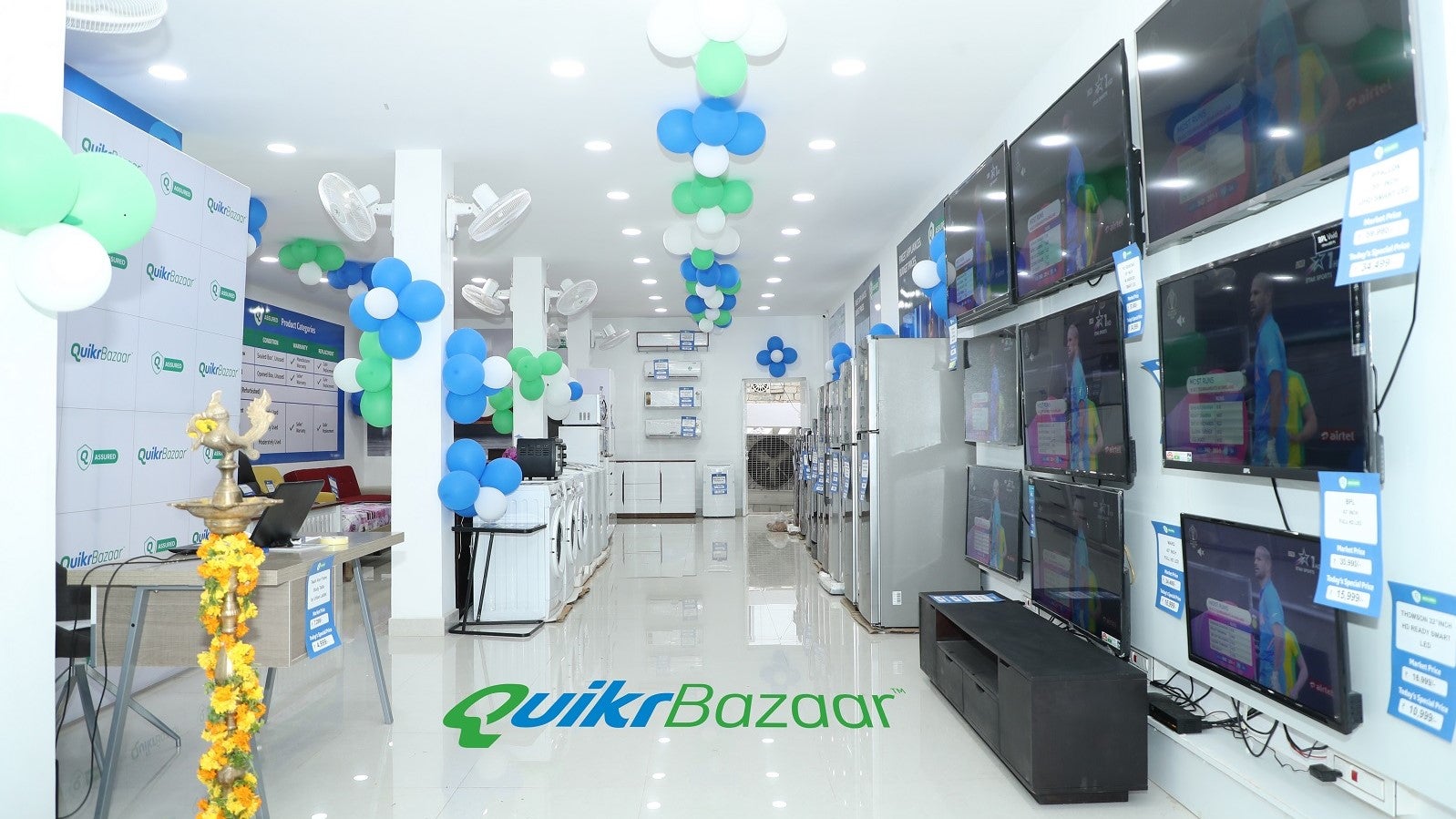Can Quikr and Olx hold up as e-commerce giants eye India’s burgeoning used-goods market?
Organised online players are still coming to grips with India’s penchant for second-hand items. For long, the mainstay of local traders, refurbishers, and even scrap-dealers, the buying and selling of used goods is increasingly going online.


Organised online players are still coming to grips with India’s penchant for second-hand items. For long, the mainstay of local traders, refurbishers, and even scrap-dealers, the buying and selling of used goods is increasingly going online.
While some internet-based players in the space, such as eBay India and Surpluss, may have failed in recent years, others like Quikr and Olx have been expanding aggressively. If anything, even e-commerce giants like Amazon and Flipkart are doubling down on their bets in the space. They are all lured by the prospects of the market clocking revenues of $25 billion by 2020.
“With decreasing product lifespans and the consumer tendency to replace goods sooner, the sentiment for pre-owned goods is growing,” an Olx spokesperson told Quartz. “Consumers have realised they can derive more value from their goods by selling it online (rather than discarding it).”
Going “phygital”
Bengaluru-based Quikr is betting big on its omnichannel strategy by expanding its network of brick-and-mortar stores QuikrBazaar, launched in December 2018. Here, refurbished and pre-owned goods such as furniture, electronics, and home appliances are sold alongside unboxed products. The emphasis, though, is on the former.
“Today’s hyper-connected customers see their online and offline experiences as one, thus having a new shopper journey, which is ‘phygital,’” said Sarath Chandra Gudlavalleti, vice-president and head at QuikrBazaar. “This change in shopping pattern has helped us build a strong O2O (online-to-offline) business model and address untapped markets in the country.”
The 10-year-old company runs over 15 stores and 10 experience zones, particularly in southern India. It plans to end 2019 with 50 outlets, especially in smaller cities like Andhra’s Ongole, Tamil Nadu’s Kumbakonam, Karnataka’s Madikeri, and Haryana’s Hisar.
“We launch retail stores in markets where consumers have limited access to big aspirational brands,” said Gudlavalleti.
Analysts see merit in Quikr’s expansion plans and the thrust on offline.
“One should look at the entire market for refurbished goods and not just online competitors. Only a fraction of the refurbished goods sell or trade online,” said Vineet Trakroo, CEO of Evolution Strategy Advisors, a Gurugram-based marketing consultancy firm. “A lot of older goods are bought back by the dealers. Therefore, it makes sense for a player to have an offline presence as well.”
In financial year 2017-18, Quikr’s revenue leaped 95% year-on-year to Rs173.49 crore, of which second-hand goods and refurbished products accounted for 15%.
In the meantime, rival Olx, too, is exploring offline opportunities.
The company’s initiative, OLX Cash My Car (CMC), for instance, enables users to sell a pre-owned car either on the Olx online platform or at its physical store. “With CMC, we are providing users convenience by offering another touchpoint to sell their cars. The entire process of driving in with your old car and walking out with cash takes less than 45 minutes,” said the Olx spokesperson.
Pre-owned cars, along with mobile phones, are the firm’s most popular categories, attracting 4.5 million daily active users. The company plans to grow its CMC store count from the current 69 to 150 by 2021.
To implement their ambitious plans, though, both Olx and Quikr must first overcome the challenges—the most formidable being competition from the new entrants.
The new players
Amazon entered India’s used-goods market with Amazon Renewed in late 2017. Consumer electronics and smartphones are the largest selling categories on the platform and about 60% of orders come from tier-2 and tier-3 towns.
The e-tailer is now educating more customers about the merits of pre-owned goods. “The focus is on assuring buyers on the quality of the available products, which are thoroughly inspected by suppliers as well as the company. All our products come with a minimum warranty of six-months,” said Vivek Somareddy, director-seller services, Amazon India.
Walmart-owned Flipkart, meanwhile, had launched 2GUD in August last year, to sell refurbished products.
The company says it is focused on ensuring quality products. “Each product is certified and graded by experts…to ensure full functionality, with an additional three- to 12-month warranty,” said Chanakya Gupta, head of 2GUD.
Since its inception, 2GUD has served close to a million consumers, it claims.
Space for all?
As the new entrants evolve, incumbents Olx and Quikr may find it harder to grow.
“E-commerce giants have deep pockets and an extensive distribution/logistics network, which is a distinct advantage over players such as Quikr and Olx,” the former head of a refurbished goods company, which has now shut shop, said on the condition of anonymity.
Quikr, though, says it is chasing aspirational Indian consumers, who want to own new products at affordable prices. “The spending power of the country’s millennial who believes in the digital, shared, rented, and pre-owned economy, and the untapped tier-2 and tier-3 markets, will continue to contribute to the growth of omnichannel retail in India,” said Gudlavalleti.
Olx, too, is unfazed by the inevitable competition. “There is space for multiple players. We are confident our strategy of catering to local markets and strengthening different verticals, will get us more users,” said the Olx spokesperson.
It remains to be seen if Quikr and Olx can hold on to their lead, amid the competition.